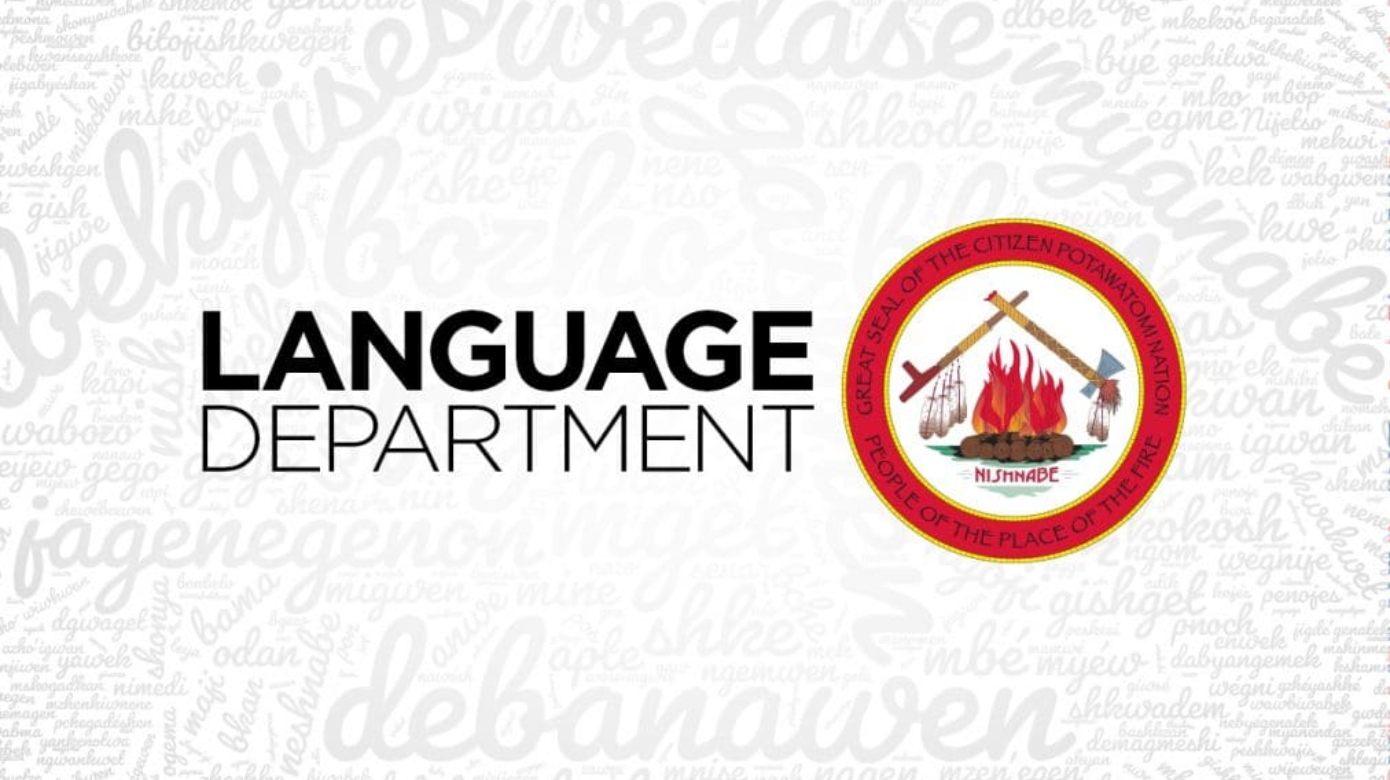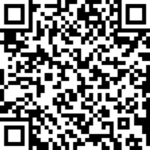By Justin Neely, CPN Language Department Director
Bozho Jayek
(Hello everyone),
As we move into June, we will have a number of events and opportunities for learning the language at Festival. Friday at 10 a.m. Festival weekend, we will have an update on various language tools at the Cultural Heritage Center preliminarily planned for the library. Friday at 5 p.m. in the North Reunion Hall, we will be doing Potawatomi bingo. Then we will be having another bingo session Saturday at noon. Saturday at 11 a.m. will be a beginner Potawatomi class. Something new we are doing this year is putting QR codes on all our signs in Potawatomi. In years past, we have had signs like store, admin building, etc. in the language. This year, there will also be a QR code on the signs that will allow you to listen to how the sign is pronounced. We also plan on having some additional QR code signs set up along the nature walk. This year in your Festival bag, we plan on having four children’s books in the language. On the back of each book will also be a QR code that will read the book to your child. We also plan on doing our scavenger hunt in the language. This will be done on site but could even be done for those who don’t travel home for the Festival. The questions will be in Potawatomi, so you will have to translate the question and then answer it. For example, if it said, “What year did the Potawatomi arrive in Oklahoma?” You could translate this, then travel to the Cultural Heritage Center and discover the answer, use the Cultural Heritage Center’s virtual tour or simply search Google.
As for tools for learning the language, there are quite a few. Our online dictionary at potawatomidictionary.com is very popular and has over 10,000 words, with audio recordings for close to 80 percent of the words. There are also example sentences as well as links to cultural information and, occasionally, videos. You can download an app version of the dictionary on the app store. We are currently offering the language in five high schools in Oklahoma where the course counts toward a world language credit required for graduation. So instead of taking two years of Spanish or French, a student can take two years of Potawatomi. The language is certified anywhere in Oklahoma. All it requires is a district showing interest and getting in contact with us — there is no cost to the district. The only requirement is that kids have devices for getting on the internet and also a teacher who can sit in the classroom to make sure the students are on task. The high schools that currently offer the Potawatomi language are Tecumseh, Wannette, Shawnee, Maud and Seminole. We started a 9-week exploratory middle school course at the request of Shawnee Middle School. We are currently working with the CPN Department of Education to get the language into several colleges where there are large numbers of Potawatomi students.
We currently have a couple of courses on Memrise at memrise.com. We also will soon be making available a new course using the same platform as our high school courses. We look to have a beginner course up some time in early summer. Finally, I would like to share some language that could be used at Festival. I will also place a QR code on this so that folks will be able to listen to the words and practice.
Bozho — Hello
Bozho Jayek — Hello everyone
Ni je na? — How are you?
Anwe she shena. — I am fine.
Gbekte ne? — Are you hungry?
Ehe mbekte. — Yes, I am hungry.
Gbektem ne? — Are you all hungry?
Ni pi je ezhyayen? — Where are
you going?
Cho ngoji — Nowhere
Wegni je wa zhechkeyen ngom? — What are you going to do today?
Nwi-moshwe ke. — I am going to make a shawl.
Gshate mget. — It’s hot.
Mno gishget — It’s a nice/ beautiful day.
Wegni je ewisneyen? — What are
you eating?
Zaskokwetek pkweshgen mine ngeshen nde-mijnen. — I am eating fry bread and a hot dog.
Ggashknabegwe ne? — Are you thirsty?
Ehe ngashknabegwe. — Yes, I am thirsty.
Ni je ezh ne kasyen? — What is your name?
Justin ndezhnekas. — My name is Justin.
Ni pi je wech bya yen? — Where are
you from?
Ggekendan ne eje ték I mizigemek? — Do you know where the bathroom is?
Nago ngi-bgemse. — I arrived yesterday.
Ngom ngi-bgemse. — I arrived today.
Wabek ne gwi-giwe? — Are you going home tomorrow?
Ni jetso dbegnak? — What time is it?
Wijeweshen — Come with me
Bama pi — Later on
Migwetch — Thank you
Ahow — Ok (can be used as a reply to thank you)
John zhenkazo. — His name is John.
Nmeshomes yawe. — He is my grandpa.
Iw
End


